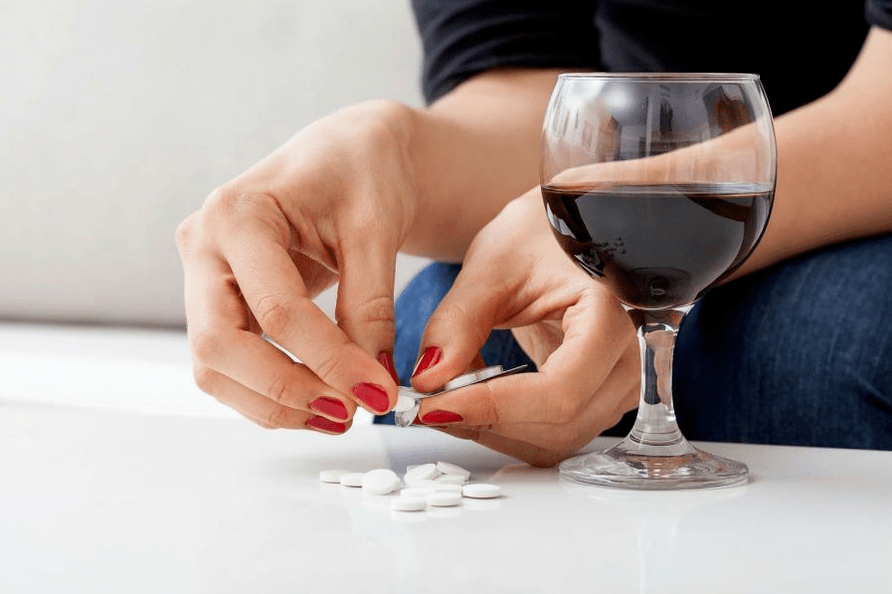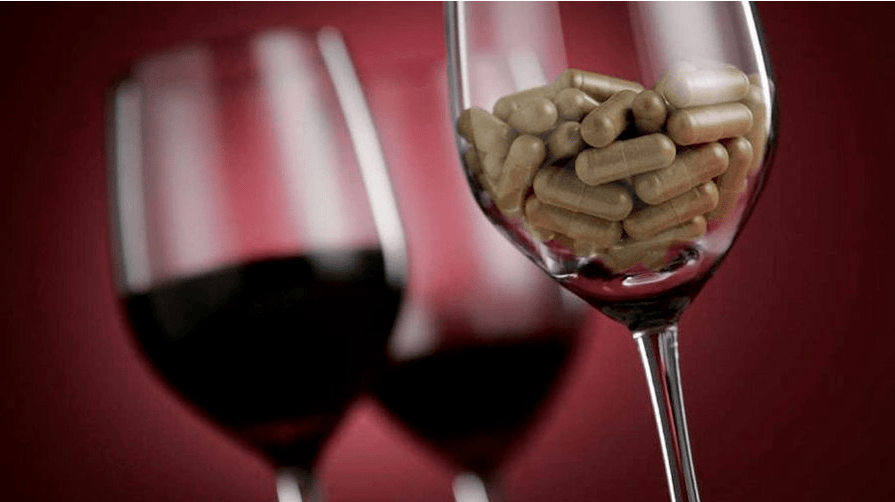Antibiotics and alcohol are incompatible - everyone knows this.But how true is this statement?Can I drink alcohol after antibiotics?If not, what threatens this cocktail?When can I drink alcohol after taking antibiotics?Some doctors insist on excluding alcohol completely during treatment, while others talked about 4 hours.It is this time that the antibiotics are completed through the active stage of the action.
Is it compatible
In prescription forms as well as in the instructions for antibiotic medications, they usually indicate that alcohol should be excluded.But this does not explain why.Many people believe that alcohol cannot be consumed during treatment because ethanol neutralizes the effects of the drugs and increases the load on the liver.In every case, this is true.
But just in case, to avoid adverse consequences, doctors recommend completely eliminating the use of beverages containing ethanol during antibiotics.Studies on a group of volunteers and laboratory rats showed that penicillin antibiotics did not respond to ethanol at all.In this case, alcohol intake is quite acceptable.
Not only can alcoholic beverages not reduce the absorption of drugs and their healing effects, but in some cases it can even speed up the healing process.These facts have not been fully studied, so it is difficult to say the real reason for this chemical reaction.
Usually, when a person drinks beer, he is not limited to a portion.Each alcohol product acts as a diuretic, so the cycle of antibiotics present in the body is reduced.The drug is simply excreted in the urine and has no time to produce a proper effect.So if you drink alcohol at the same time as an antibiotic, do this in the right dose rather than abuse.
Antibiotics that are allowed in combination with alcohol:
- Penicillium group.
- Cephalosporin.
- Macrolides.

In the case of the above medications, you need to remember that you cannot drink antibiotics with alcohol.If you are treated with penicillin, you should remember that alcohol can be consumed no earlier than 4 hours after the tablet is drunk.This period is enough to allow the drug to enter the bloodstream, and the decomposition cycle in the liver can perform its function and begin to be adsorbed by the kidneys.
The drugs used can be consumed in combination with alcohol, but you cannot abuse alcohol.It is necessary to limit yourself and control it.
What happens if you drink too much?Alcohol is drawn into the blood through the stomach wall, reaching the liver, where it is broken down into components by enzymes, which can eventually be removed by the kidneys.If this ethanol has too much effect, the production of liver enzymes will be intensified, not only dividing ethanol, but also dividing antibiotics.As a result, these drugs excrete faster than they should, so they don't have time to perform their functions.They should be built into the life of important activities of bacteria and viruses, which can cause symptoms of the disease.
Antibiotics destroy the synthesis of proteins in the virus, destroy their shells, and prevent the possibility of reproduction.The process of drinking means diuretic effect.Therefore, antibiotics make the body much faster than bacteria, and viruses manage to destroy it.It turns out that while these types of antibiotics are allowed, drinking alcohol with these antibiotics has reduced the effect.
Drugs that exclude alcoholic joint intake
There is a set of antibiotics that are absolutely incompatible with alcohol.This is because their property prevents the development of enzymes that break down ethanol.They have an effect on the body, are similar in the properties of disulfiram, and help with drug encoding in alcoholism.If a person uses antibiotics with similar characteristics, any form of alcohol can be avoided.
Otherwise, the consequences may be irreversible until death.Preparations with disulfiram effect.If you have prescribed the above medications, alcohol should be excluded throughout the treatment period.After drinking alcohol and similar pills, incompatible reactions will occur later.
Symptoms of alcohol and antibiotic incompatibility:
- Headache and dizziness.Migraine.Share the pain from time to head or any other direction.
- Nausea and vomiting cannot be stopped.Enter the empty belly.
- Arrhythmia, increase in heart rate, increase in blood pressure, and stress.Difficulty in breathing.
- Loss of consciousness and fainting may develop into coma.
- Kidney and liver failure.Skin and eyes yelled.

All these unpleasant symptoms occur if a person drinks alcohol and drugs similar to disulfide effects.Tablets contain chemicals that block the production of enzymes that break down ethanol.In the liver, the excretion of acetaldehyde is delayed.
When can I drink alcohol in a treatment antibiotic course
To avoid damage to the liver and kidneys, and enzymes that produce enzymes due to enzymes that cannot break down ethanol, you should know how long antibiotics are in your body.Disulfides and compounds in drugs with similar properties are accumulated in adipose tissue.The excretion period is 12-18 hours.
The period of complete excretion is up to 2 weeks.At that time, you can drink boldly after antibiotics.How long should you avoid taking antibiotics from alcohol?Doctors recommend starting the drug process after 4 days of not drinking alcohol.Of course, such periods are considered safe.If it is related to emergency treatment of the disease, it is sufficient for 1-2 days.
How many antibiotics can you drink after the antibiotic?The doctor talked about it for 4 hours.In fact, it is best to bear at least 12 hours when the liver and kidneys remove most medications, otherwise the body can view joint intake as poisoning and try to remove attenuation products.Nausea, vomiting, diarrhea, headache.
How many days should you go through during the treatment and then you can use alcoholic beverages fearlessly?Therefore, the minimum period after taking tetracycline for antibiotics should be passed for 3-4 days before you can restore a happy lifestyle.Ethanol reduces the absorption of tetracycline into the bloodstream, so it is best not to use this kind of alcohol.
They simply do not recommend drinking antibiotic beer because it has diuretic properties.For tetracycline, binding to ethanol is not desirable.The drug's meeting effect is reduced.If a person is sick, how many antibiotics can you drink before he drinks a lot of alcohol?If symptoms of hangover syndrome are felt in the morning, it is not worth starting the treatment process these days.
It is recommended to wait 2-3 days for the body to restore its strength and remove all attenuation products from ethanol.Drugs that act tetracycline and disulfiram are absolutely incompatible with alcohol.You should wait 3-4 days before taking pills, and at least 1 week after the course is over, and then you can use alcohol fearlessly.
However, with the penicillin series of antibiotics, combined alcohol intake is allowed.In some cases, even the acceleration of the healing process is observed.However, you should not abuse it.Because alcohol has diuretic properties and reduces the presence of drugs in the body, this in turn leads to the fact that antibiotics do not have time to have an effect.























